How Long Will Germany Welcome Refugees? The View from Berlin
28.09.15 BERLIN––Yesterday, I went to a picnic, with approximately 1000 people, to welcome refugees to Berlin. It was organised by the activist organisation „Schön, dass ihr da seid!“ (“Happy you’re here”) and partners, and took place on the former Tempelhof Airfield, the massive airport space used to keep West Berlin alive during the ’47-’49 Blockade. What a setting! The long runway and terminal, a big open autumn sky, crisp light, and fall colours. It felt like the refugees, arriving in such numbers, were being brought from the air, rather than from their long and dangerous overland journeys.
I was there lending a hand at the welcome/info tent, writing out name tags on a roll of masking tape with a marker. Pressing in on all sides were dozens of adults and small children, people who really wanted to have their names spelled out. Maybe it is because they have spent so many long hours waiting to have their names inscribed in front of Lageso––the Berlin regional authority that is supposed to register them, but that is overwhelmed by numbers (and too inflexible to dream up a better and more humane system than the one that makes them wait all day for weeks on end). Lageso is a hurdle, part of an unprepared infrastructure, that these people didn’t quite anticipate in such a reputedly organised country as Germany.
I felt like an Ellis Island official butchering surnames as I wrote them out. ‘It will do’, says one, while another takes the pen from me and writes out his correctly. Others are surprised that I more or less spell their names correctly and cry out ‘Maschallah!’ clapping me on the back. I ask where all these Mohammeds and Jamals and Afërditas and Ajars and Fatimahs and Hadis are from––and the usual answers are Eritrea, Iraq, Syria, Pakistan, Kurdistan, Afghanistan, and Albania.
I shouldn’t have been surprised by how travel-worn they looked. I have worked with refugees before: in former Yugoslavia during the war and also in Central Asia. But these people, for the most part, really looked very rough, having just arrived in Germany from journeys that range from two weeks (from the Near East) to many months (from, say, Afghanistan). ‘And how long have you been in Germany?’ I would ask. And I would get the reply: ‘One month’. But, more often, I’d hear ‘one week’ or ‘two days’. They are new.
Maybe it’s because I am a historian that I think these refugees have 20th-century faces, wartime faces. They were haggard, their complexions dried out, their hair rough. They are emaciated, some are fragrant, others look ill. Many don’t look you directly in the eyes; they are broken. Some look at you very searchingly. Then another is lying in the sun with a cigarette, watching the enormous cumulus clouds that have emerged like blimps over the airfield. One cloud passes over the sun, and a chill sets in. And I ask, what will they do in winter?
And I understand why that 1883 poem about American immigration, ‘The New Colossus’, by Emma Lazarus, is so often quoted:
Keep, ancient lands, your storied pomp!” cries she
With silent lips. “Give me your tired, your poor,
Your huddled masses yearning to breathe free,
The wretched refuse of your teeming shore.
Send these, the homeless, tempest-tost to me,
I lift my lamp beside the golden door!
These people are exactly that: tired, poor, huddled, wretched, and homeless. But then I see in their eyes something I’ve seen before––the look of the new refugee, if you will––one that is alert, insistent, and slightly frightened. That ‘deer in headlights’ look. And I know, well enough, that ––although they have been downtrodden by their overland journeys––it is precisely that nervous spark in them that might make them learn German in six months (as one Syrian man in his 40s demonstrated to me); or sit attentively in circles in the legal aid tent of the picnic absorbing procedures through whispered translations; or have the determination to survive in a climate and culture that is so alien to them. It is all part of a restitution of their dignity.
The DJs are on the stage, and rap seems to be the common music, so that Albanians and Syrians can meet half-way. Cliques of men pose on stage in sunglasses and tight polyester t-shirts. Groups form elsewhere in the massive open space––where tents run by organisers dispense donated food and drink, kids play with bikes and paint pictures, where a group of German youngsters have invited Afghans to play cards with them on a blanket, or there is a skills-exchange noticeboard for tandem partners or cooking classes. Someone has a drum, and a group of men dance in a circle, German girls between them, singing out. Meanwhile, other women with their refugee families are sitting well part.
There are so many nationalities here, so many different codes, so many different levels of education, so many expectations for relations between the sexes…
I talk to two girls, 14 and 17, who are staying at a refugee reception center in Schoeneberg, and they tell me how the presence of so many young men frightens them. They feel threatened. ‘Some men, especially, don’t have much experience around women’, the elder tells me, ‘I feel watched all the time: when I eat, for example. I’m afraid to go to the bathrooms’. The other replies, ‘And the bathrooms are disgusting. But we will endure it!’ and she holds her nose.
Berlin activist and social-assistance NGOs have a string of tables on one side of the picnic grounds, and I mention the girls’ comments to someone working there on women’s issues, who suggests that the girls just need to learn to have a little Mut or ‘courage’. I reply, ‘But one is 14! They just arrived, how much courage can they have when dealing with rowdy groups of young men?’ And she replies, ‘Send them to me, I’ll show them what to do!’ And I despair a little because of the lack of empathy and cultural savvy. Young women like this don’t just need courage, they need help.
The great welcome these Berliners have given these new arrivals is very touching. But over dinner, I talk with my friends, and we are brimming with so many questions, most of which cannot yet be answered.
I am less worried about these refugees’ ability to contribute to Germany––its social fabric and economy––than how the ‘German’ reaction will develop. From the multicultural Berlin neighbourhoods of Neukölln or Kreuzberg––or their cognates in Hamburg, Frankfurt, Stuttgart or Munich–– it is easy to feel that Germany is welcoming, or that Germans are prepared to move beyond strictly racial and national definitions of belonging. It is reassuring to say that Germany has learned from its terrible past, the mass murder based on the perception of ethnicity, and that this is what distinguishes it from its nationalist neighbours, especially to the East.
Sometimes I wonder, when I venture out of my little bubble, whether, although Germany is generally with some exceptions a tolerant land, it cannot shake that conservative idea of what it means to be ‘German’. German policy seems set to reinvigorate its workforce with new arrivals, but how they will eventually fit into the hierarchy of cultures is not so clear. We will see whether Germany can really become a multicultural society. Or whether these ‘ancient lands’ might still have a little bit of ‘storied pomp’ left in them. Perhaps, with events like the picnic yesterday, we can make a difference regarding which direction is taken.
—–
by Joseph Pearson
*This is the third in a series of articles on The Needle about the refugee arrivals in Berlin. Read the others:
1. Why Germany Welcomes Refugees?
2. Razor Wire and Refugees: What’s Happening Now in Berlin.
4. Berlin’s Appalling Conditions at Refugee Registration Centre LaGeSo.

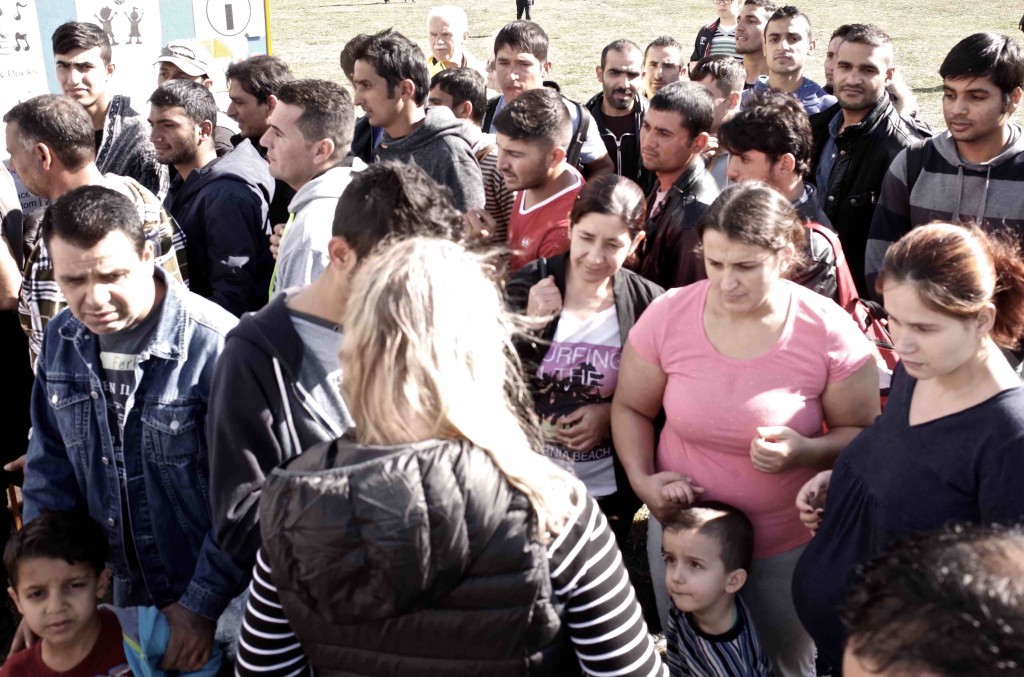
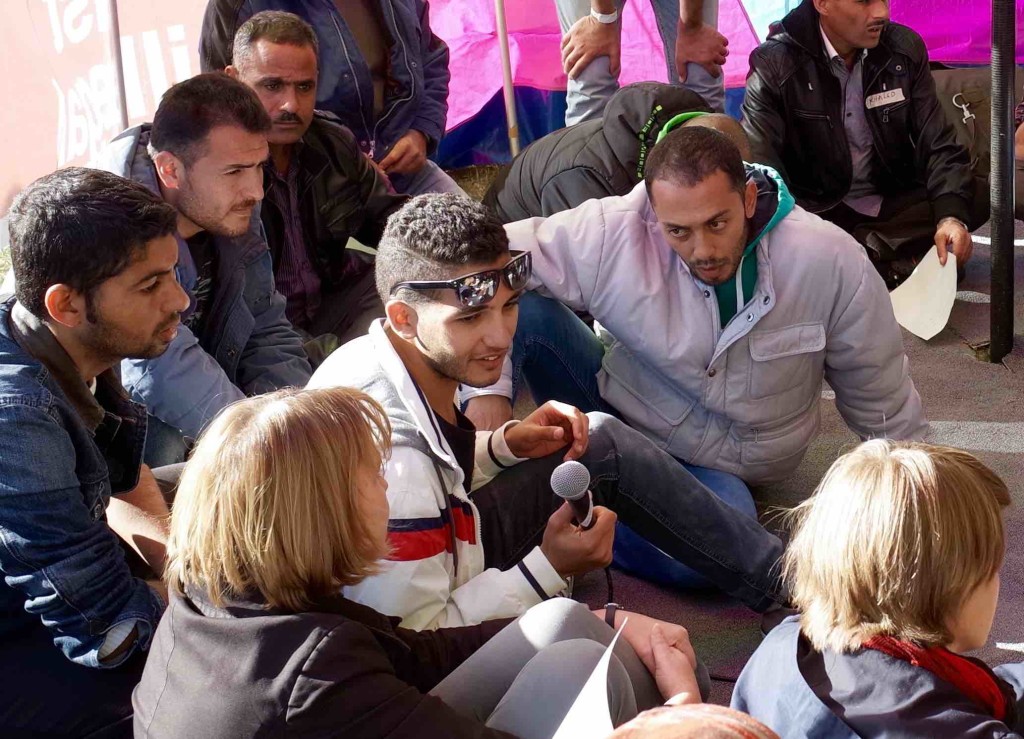
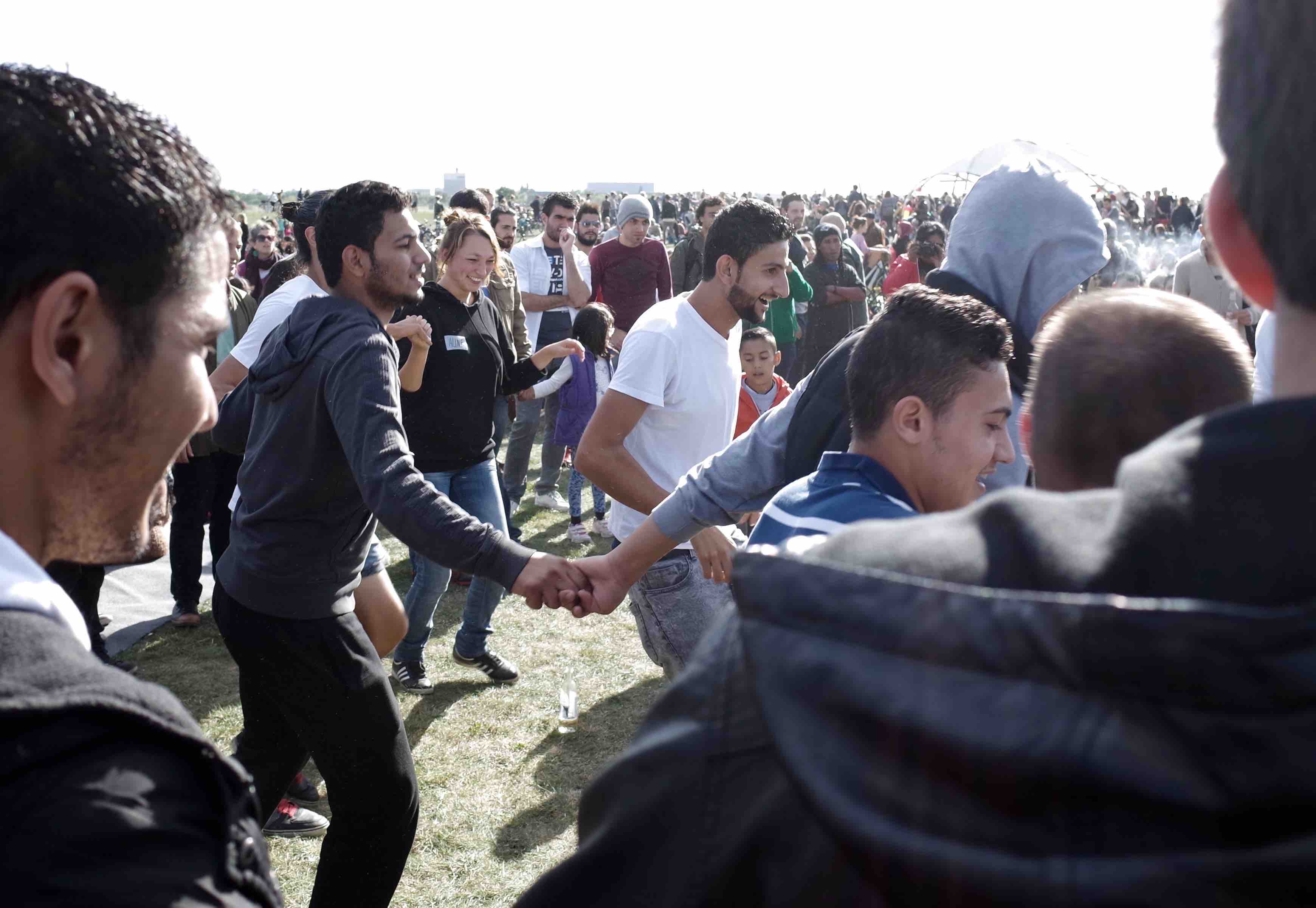
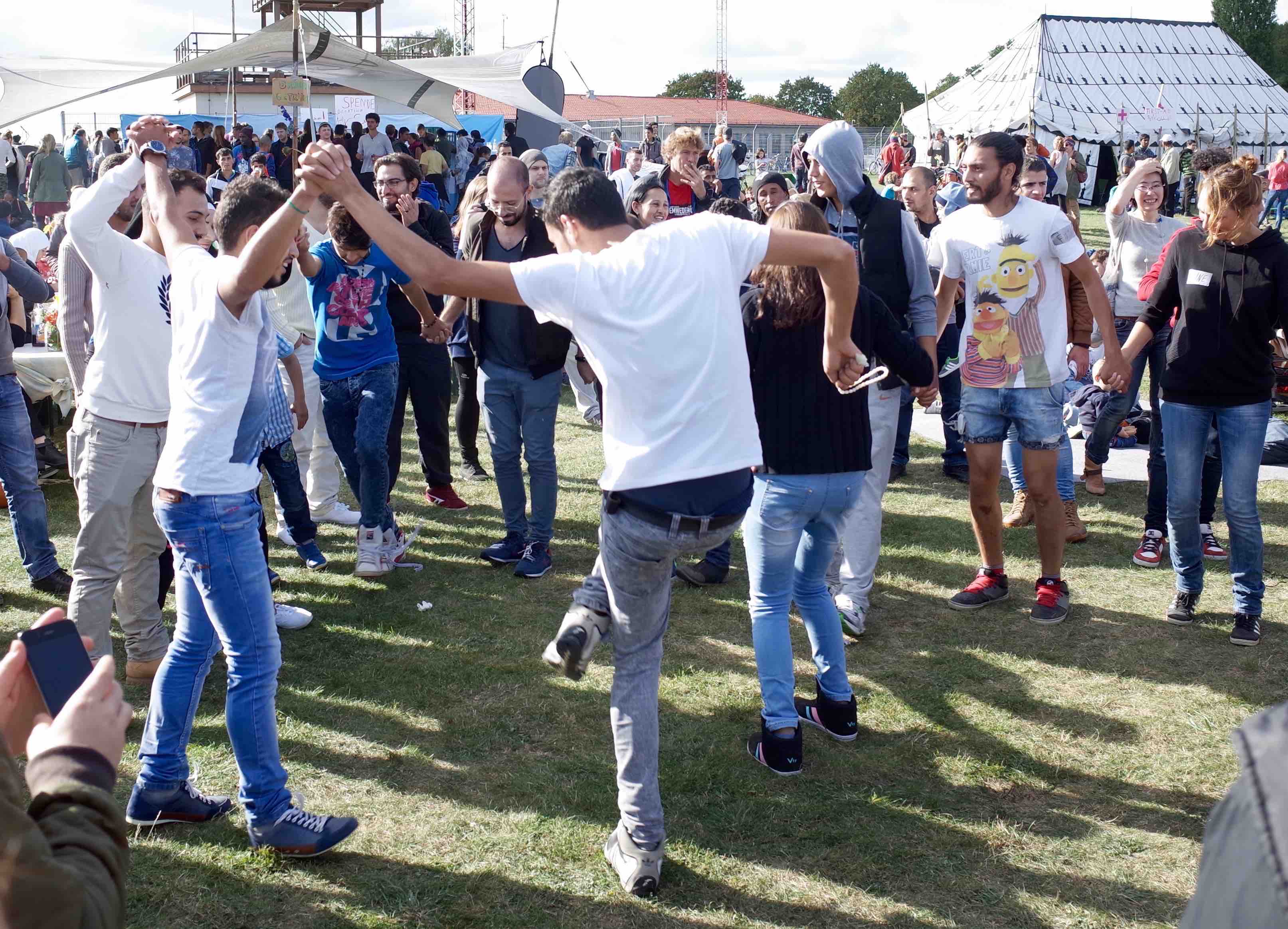
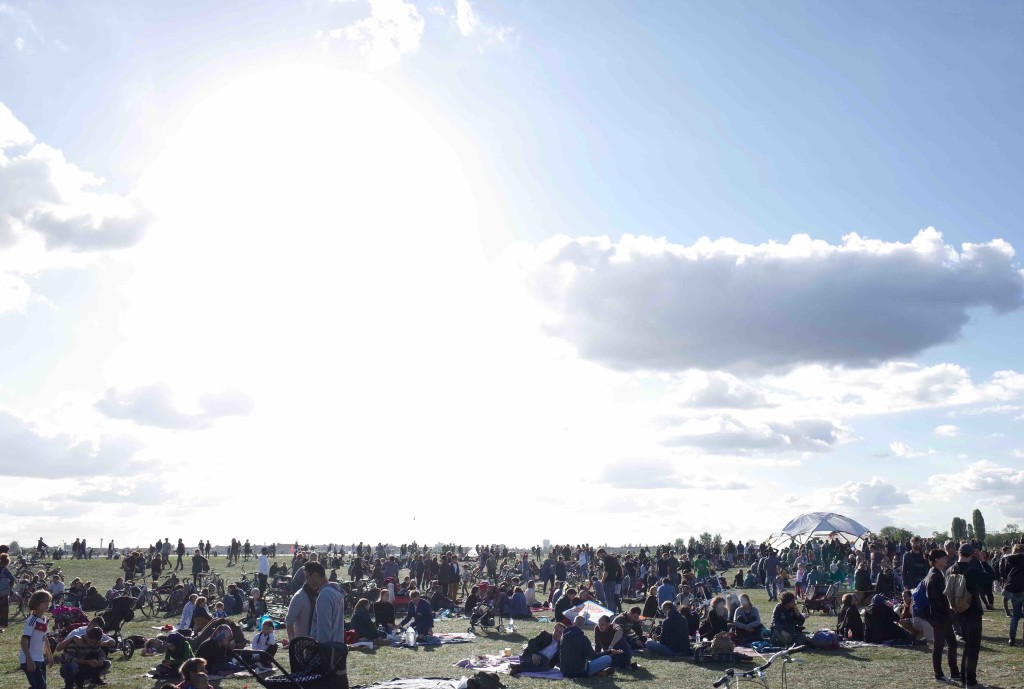
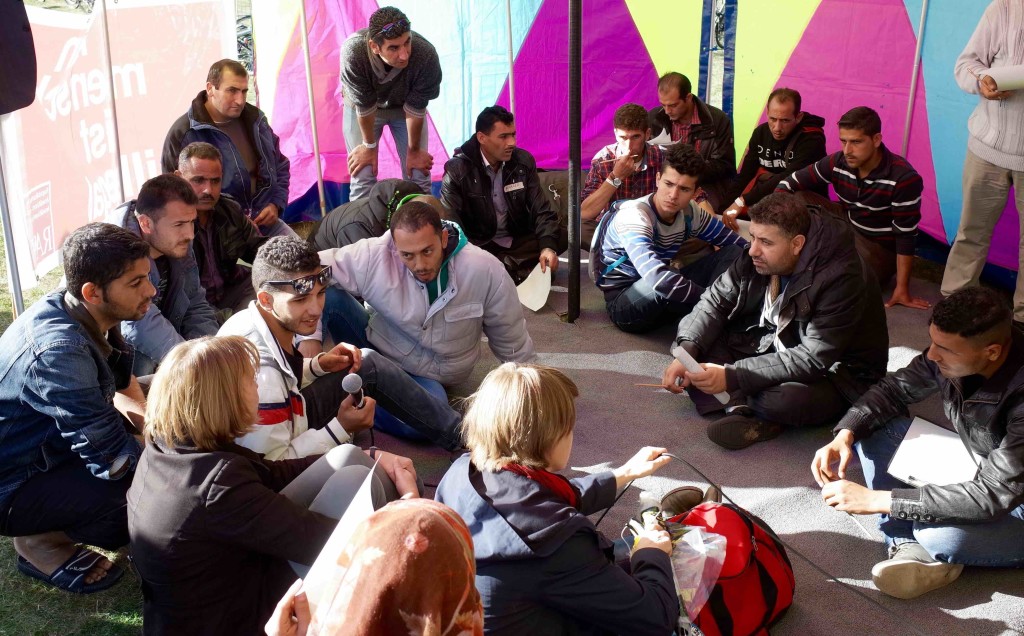
Thank you so much for this wonderful touchin article. We are all part of something so important happening in Germany and Europa. Let us try to make the best out of it! There is place for all of us in this land! Thank you <3